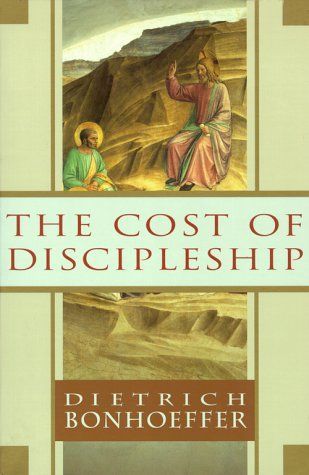
The Cost of Discipleship
What can the call to discipleship, the adherence to the word of Jesus, mean today to the businessman, the soldier, the laborer, or the aristocrat? What did Jesus mean to say to us? What is his will for us today? Drawing on the Sermon on the Mount, Dietrich Bonhoeffer answers these timeless questions by providing a seminal reading of the dichotomy between "cheap grace" and "costly grace."
Reviews
charisa@charisa
Todd Luallen@tluallen
Dana Kraft@dkatx
grace mckee@gmckee
Raven@ravenhoward
Reinier Terblanche@rainman
Cheri McElroy@cherimac
Stephanie Ridiculous@stephanieridiculous
Aunica Sherwood@book_bitch
Aleena Korell@aleena
Jeremy Anderberg@jeremyanderberg
Jake Holloway@jakeish
Kevan Lee@kevanlee